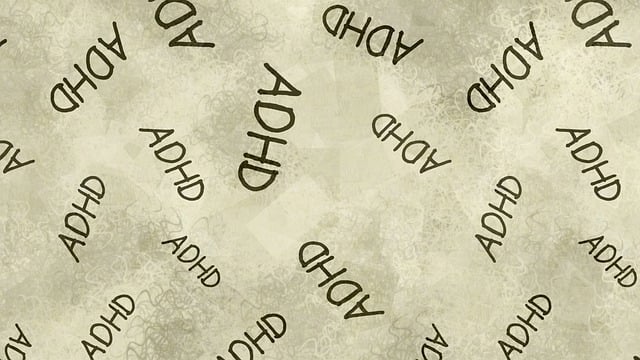Developing emotional intelligence (EI) is crucial for young adults facing interpersonal challenges, as it enhances their ability to navigate relationships through self-awareness and empathy. In therapy, cultivating mindfulness and understanding others' feelings can strengthen social connections and improve overall well-being. Techniques like reflection, mindfulness, and conflict resolution help young adults transform emotional responses, achieve better mental health outcomes, and foster healthier relationships. Effective communication, particularly active listening, is a key EI component that creates safe spaces for open expression. Self-care practices, integrated into daily routines, promote emotional regulation and healthier connections, while public awareness campaigns encourage healthy habits to support young adults' mental health and interpersonal well-being.
Emotional intelligence (EI) is a powerful tool for navigating interpersonal relationships and overcoming therapy for young adults with emotional issues. This article explores key aspects of building EI, including understanding its significance in fostering healthy connections, identifying and managing emotions for increased self-awareness, enhancing empathy to bridge communication gaps, refining active listening skills for effective communication, and prioritizing self-care to support overall emotional well-being. By delving into these areas, young adults can thrive in their interactions and relationships.
- Understanding Emotional Intelligence: A Key to Healthy Relationships
- Identifying and Managing Emotions: The First Step Towards Self-Awareness
- Enhancing Empathy: Putting Yourself in Others' Shoes
- Effective Communication: Building Bridges Through Active Listening
- Practicing Self-Care: Nurturing Your Emotional Well-being for Interpersonal Success
Understanding Emotional Intelligence: A Key to Healthy Relationships

Understanding emotional intelligence (EI) is a pivotal aspect of navigating interpersonal relationships effectively. EI involves recognizing and managing one’s own emotions and understanding the feelings of others, which forms the foundation for meaningful connections. For young adults seeking therapy for interpersonal issues, developing emotional intelligence can significantly enhance their social interactions and overall well-being. By cultivating self-care practices that promote mindfulness, empathy, and self-awareness, individuals can build stronger bonds with peers, family, and partners.
In the context of healthcare provider cultural competency training, promoting EI is essential for creating inclusive and supportive environments. Healthcare providers who demonstrate emotional intelligence are better equipped to understand and address the unique needs of diverse patient populations. This fosters a sense of belonging and trust, ultimately improving patient outcomes and satisfaction. Recognizing and valuing emotional intelligence as a crucial component of both personal growth and healthcare delivery can lead to more harmonious relationships in various aspects of life.
Identifying and Managing Emotions: The First Step Towards Self-Awareness

Emotional intelligence building begins with identifying and managing our emotions, a crucial step towards self-awareness. Many young adults struggle with interpersonal issues, which can stem from an inability to recognize and regulate their feelings. Therapy for young adults often focuses on compassion cultivation practices—learning to acknowledge and accept emotions without judgment. By integrating these practices into daily routines, individuals develop a deeper understanding of themselves and others.
Self-care practices play a significant role in this process as they promote emotional well-being. Regular reflection, mindfulness exercises, and engaging in conflict resolution techniques can help manage intense emotions and foster healthy relationships. These skills are essential for navigating interpersonal challenges and building resilience. Through practice, young adults can transform their emotional responses, leading to improved mental health and more fulfilling social interactions.
Enhancing Empathy: Putting Yourself in Others' Shoes

Empathy is a cornerstone of emotional intelligence and plays a pivotal role in our interactions with others. Developing this skill involves stepping into someone else’s shoes to understand their feelings, thoughts, and experiences from their perspective. This capacity for perspective-taking fosters deeper connections, strengthens relationships, and promotes effective communication.
For young adults navigating interpersonal issues and seeking therapy, enhancing empathy can be transformative. By participating in stress management workshops or engaging with a mental wellness podcast series production designed to focus on interpersonal skills, individuals can learn conflict resolution techniques that build stronger bonds. This process encourages active listening, non-judgmental understanding, and thoughtful responses, ultimately leading to more fulfilling social dynamics and improved emotional well-being.
Effective Communication: Building Bridges Through Active Listening

Effective communication is a cornerstone of emotional intelligence and an essential tool for navigating interpersonal issues, especially in therapy for young adults. Active listening, a key component of this process, involves paying undivided attention to another person’s words and emotions. It fosters understanding by creating a safe space where individuals feel heard and validated. When combined with mindfulness practices, active listening becomes a powerful method to manage stress and build resilience.
In the context of young adults’ therapy, learning to communicate effectively enables them to express their feelings and thoughts openly. This skill is vital for developing strong relationships, resolving conflicts, and enhancing overall well-being. By integrating mind over matter principles and coping skills development through active listening, individuals can transform their interpersonal interactions, leading to better mental health outcomes.
Practicing Self-Care: Nurturing Your Emotional Well-being for Interpersonal Success

In today’s fast-paced world, young adults often face numerous interpersonal challenges that can significantly impact their emotional well-being and overall success. Practicing self-care is a vital component in building emotional intelligence (EI). By prioritizing mental health awareness, individuals can develop resilience and effective coping strategies to navigate through stress, anxiety, and other common issues. Therapy for young adults dealing with interpersonal problems offers a safe space to explore emotions, strengthen social skills training, and enhance self-awareness—all essential aspects of EI development.
Integrating self-care practices into daily routines encourages emotional regulation and fosters healthier relationships. Public awareness campaigns development around mental health can play a crucial role in promoting healthy habits such as mindfulness exercises, regular physical activity, and adequate sleep. These initiatives contribute to building a supportive environment where young adults feel empowered to seek help when facing interpersonal issues, ultimately enhancing their ability to connect with others on a deeper level.
Emotional intelligence is a powerful tool for navigating interpersonal issues, and its development begins with self-awareness. By understanding and managing emotions, practicing empathy, enhancing communication skills, and prioritizing self-care, young adults can improve their relationships and overall well-being. This journey towards emotional maturity is not just beneficial for personal growth but also plays a pivotal role in seeking therapy for young adults facing interpersonal challenges. Embracing these strategies empowers individuals to foster healthier connections and navigate life’s complexities with increased resilience.








